Removal Procedure
- Remove the starter motor. Refer to Starter Motor Replacement in Engine Electrical.
- Remove the crossmember brace.
- Remove the transmission cover bolt and cover.
- Drain the engine oil and remove the engine oil filter.
- Re-install the drain plug and oil filter until snug.
- If equipped with the 4L60-E automatic transmission, remove the transmission bolt and stud on the right side.
- Remove the bottom bolt on the left side.
- Disconnect the oil level sensor electrical connector (6).
- Remove engine harness from front of oil pan.
- Remove the oil pan bolts.
- Remove the oil pan.
- Drill (3) out the oil pan gasket retaining rivets (2), if required.
- Remove the gasket (1) from the pan.
- Discard the gasket and rivets.
- Clean and inspect the engine oil pan. Refer to Oil Pan Cleaning and Inspection .
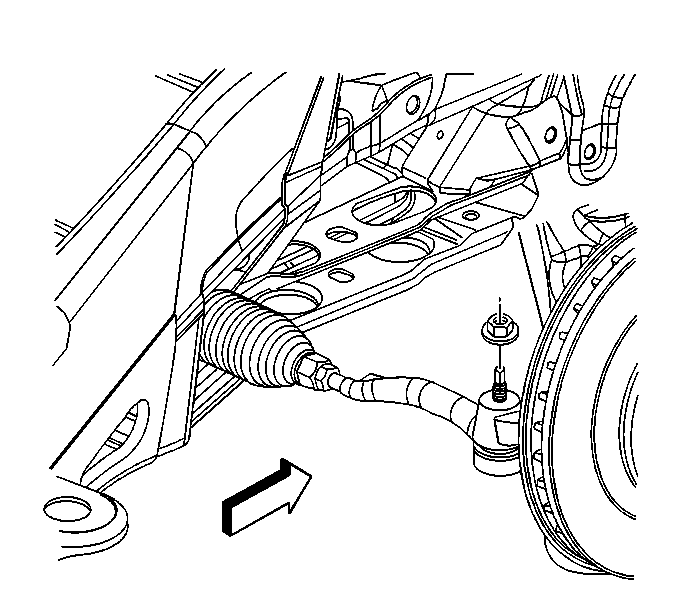
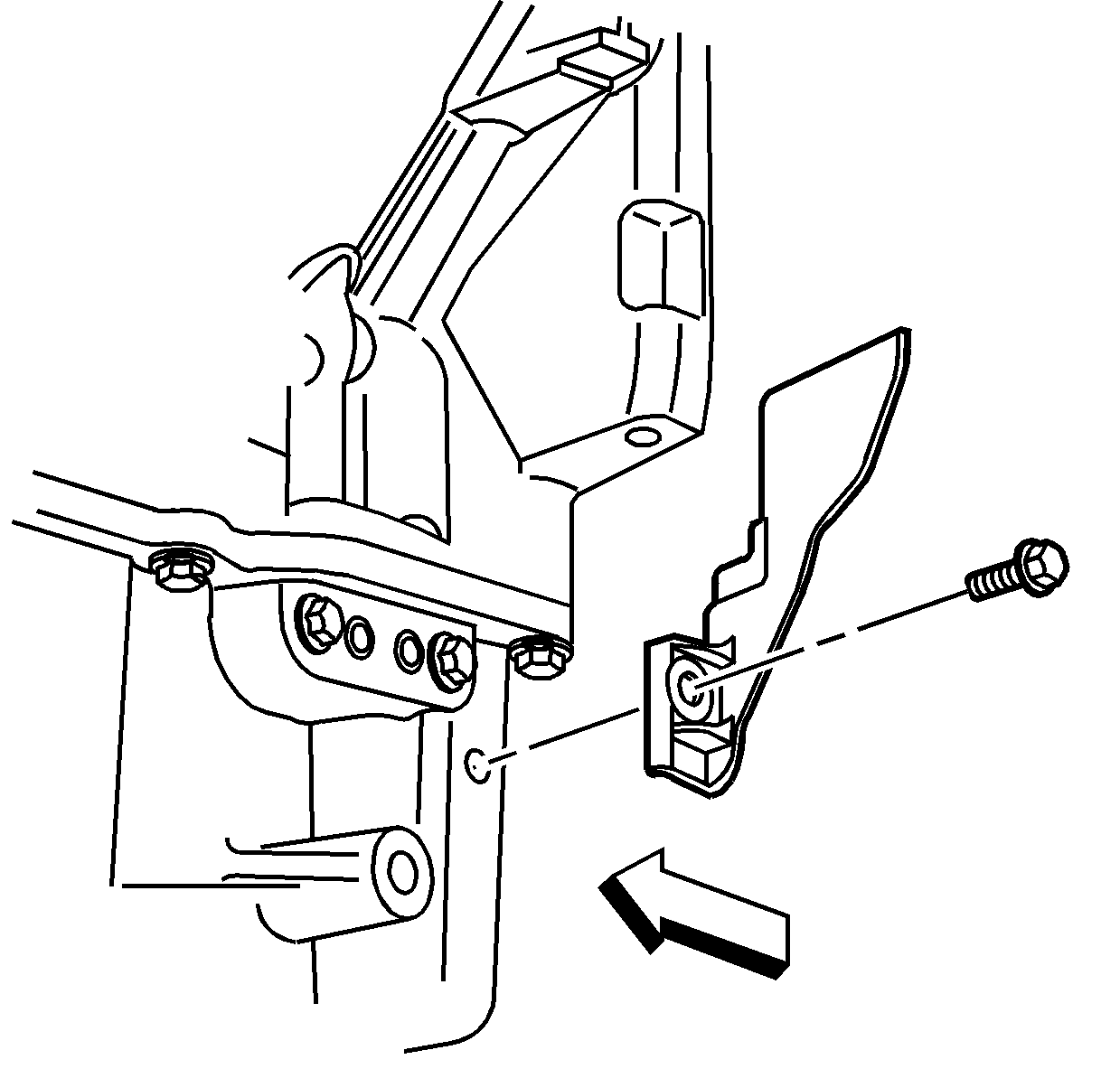
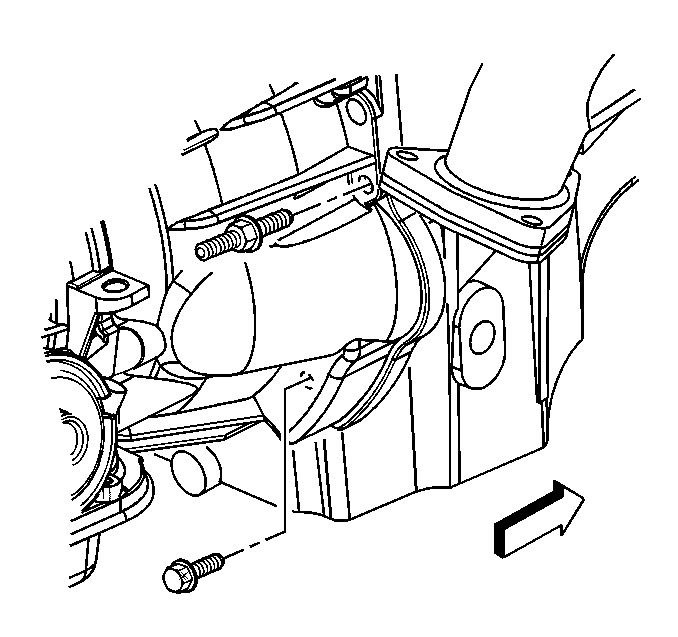
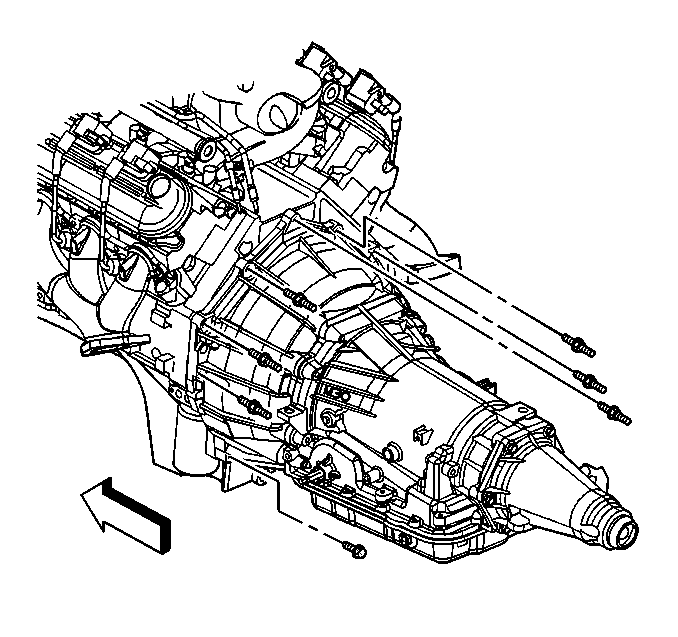
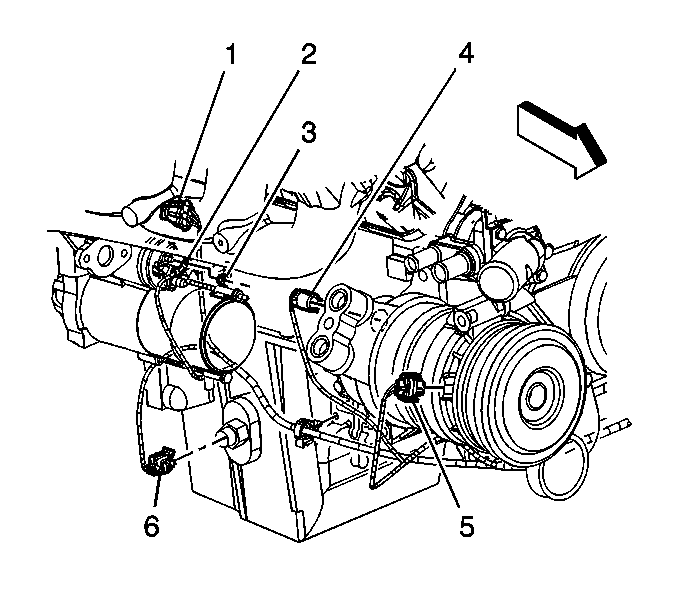
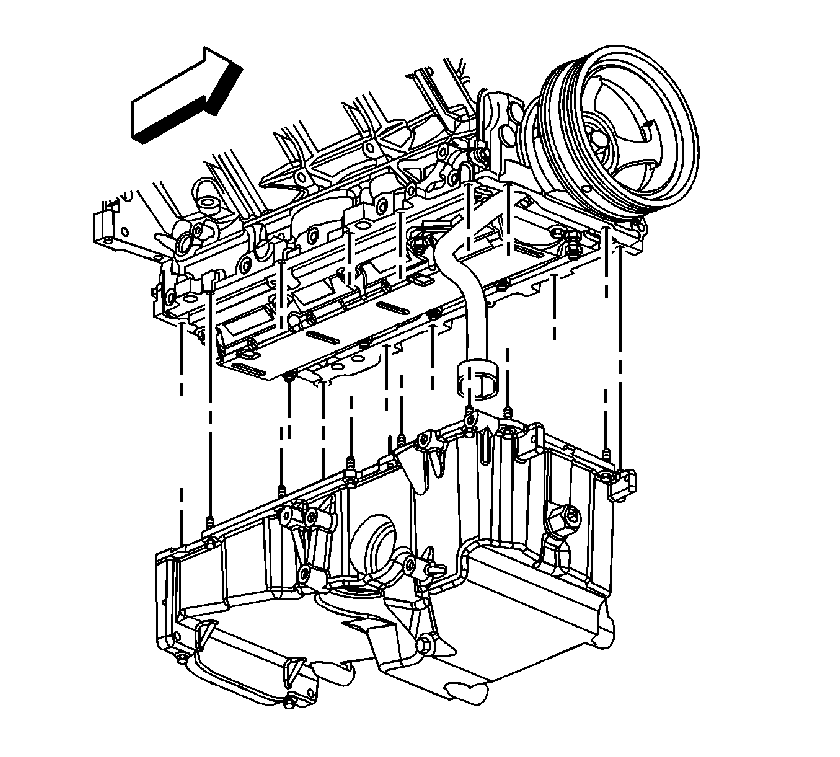
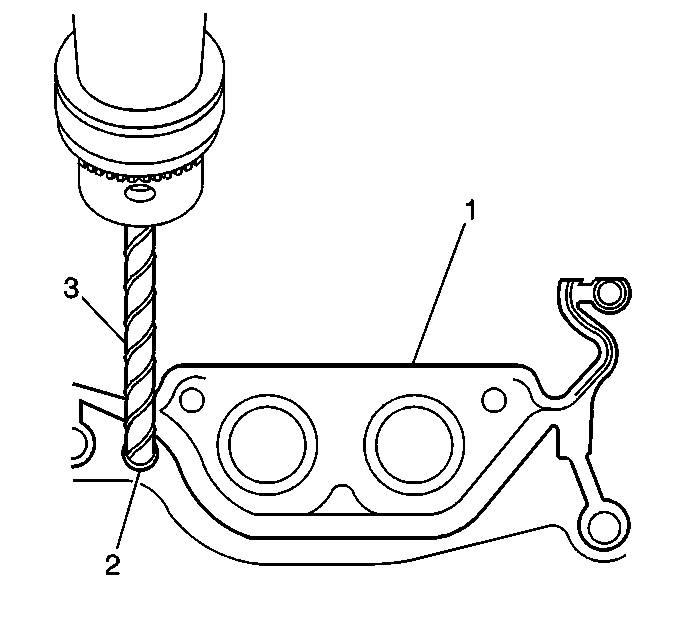
Important: DO NOT allow foreign material to enter the oil passages of the oil pan, cap or cover the openings as required.
Installation Procedure
Important:
• The alignment of the structural oil pan is critical. The rear bolt hole
locations of the oil pan provide mounting points for the transmission bellhousing.
To ensure the rigidity of the powertrain and correct transmission alignment, it is
important that the rear of the block and the rear of the oil pan must NEVER protrude
beyond the engine block and transmission bellhousing plane. • Do not reuse the oil pan gasket. • It is not necessary to rivet the NEW gasket to the oil pan.
- Apply a 5 mm (0.20 in) bead of sealant GM U.S. P/N 12378190, or equivalent 20 mm (0.80 in) long to the engine block. Apply the sealant directly onto the tabs of the front cover gasket that protrudes into the oil pan surface.
- Apply a 5 mm (0.20 in) bead of sealant GM U.S. P/N 12378190, or equivalent 20 mm (0.8 in) long to the engine block. Apply the sealant directly onto the tabs of the rear cover gasket that protrudes into the oil pan surface.
- Pre-assemble the oil pan gasket to the pan.
- Install the oil pan, gasket and bolts to the engine block.
- Tighten the oil pan bolts until snug. Do not overtighten.
- Install the transmission bolt and stud on the right side until snug, If equipped with the 4L60-E automatic transmission.
- Install the bottom bolt on the left side until snug.
- Tighten the oil pan and oil pan-to-oil pan front cover bolts to 25 N·m (18 lb ft).
- Tighten the oil pan-to-rear cover bolts to 12 N·m (106 lb in).
- Tighten the bellhousing, converter cover, and transmission bolts/stud to 50 N·m (37 lb ft).
- Install engine harness to front of oil pan.
- Connect the oil level sensor electrical connector (6).
- Install the transmission cover and bolt.
- Install the crossbar.
- Install the crossbar bolts.
- Install the starter motor. Refer to Starter Motor Replacement in Engine Electrical.
- Install new engine oil and a new oil filter. Refer to Engine Oil and Oil Filter Replacement .
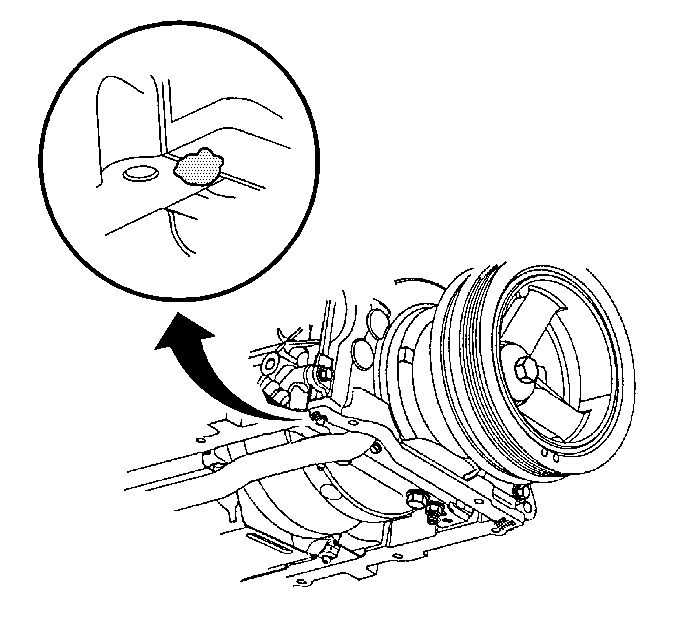
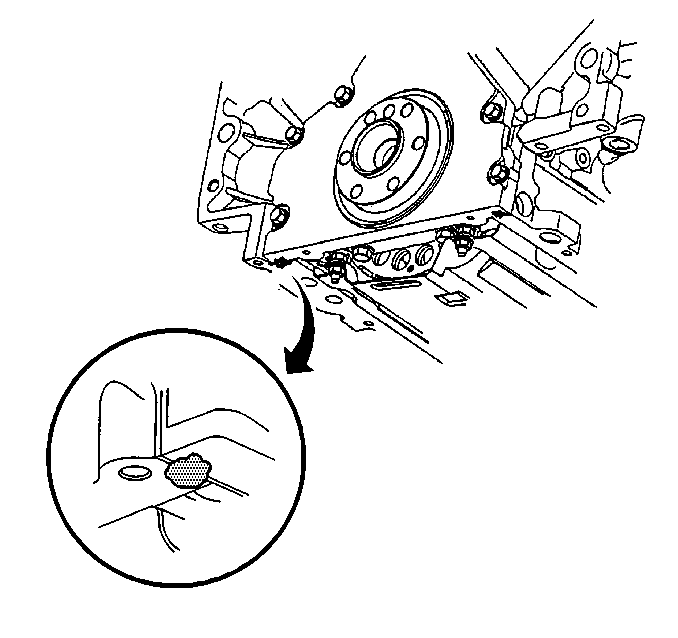

Important: Be sure to align the oil gallery passages in the oil pan and engine block properly with the oil pan gasket.
| • | Install the gasket onto the pan. |
| • | Install the oil pan bolts to the pan and through the gasket. |


Notice: Use the correct fastener in the correct location. Replacement fasteners must be the correct part number for that application. Fasteners requiring replacement or fasteners requiring the use of thread locking compound or sealant are identified in the service procedure. Do not use paints, lubricants, or corrosion inhibitors on fasteners or fastener joint surfaces unless specified. These coatings affect fastener torque and joint clamping force and may damage the fastener. Use the correct tightening sequence and specifications when installing fasteners in order to avoid damage to parts and systems.
Tighten


Tighten
Tighten the transmission cover bolt to 12 N·m (106 lb in).
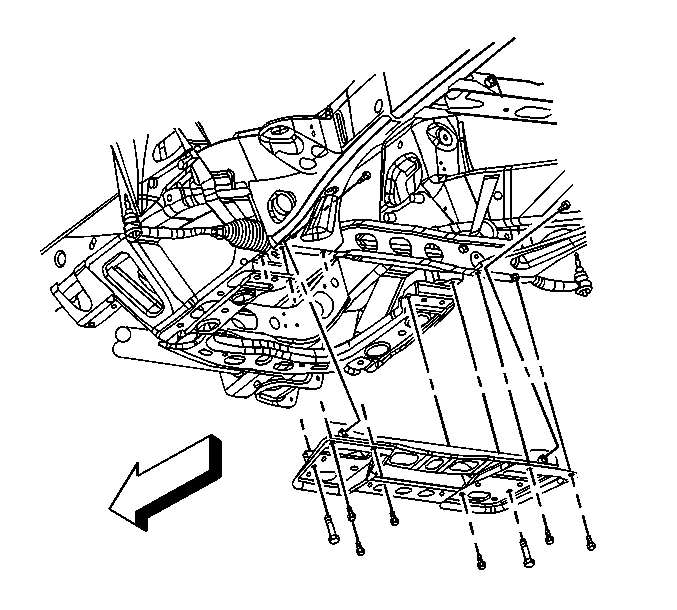
Tighten
Tighten the crossbar bolts to 100 N·m (74 lb ft).
